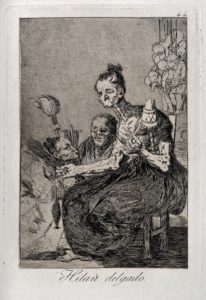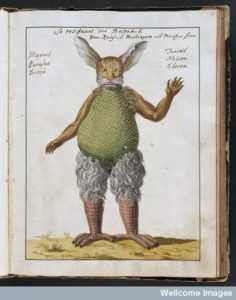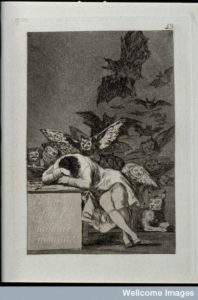Hans Sloane to Jean-Paul Bignon – May. 29. 1714.
Item info
Date: May. 29. 1714. Author: Hans Sloane Recipient: Jean-Paul BignonLibrary: British Library, London Manuscript: Sloane MS 4068 Folio: f. 92-94
-
Language
French
-
Library
British Library, London
-
Categories
-
Subjects
Copies, Deafness, Lost letter, Natural History of Jamaica
-
Date (as written)
May. 29. 1714.
-
Standardised date
-
Origin (as written)
-
Others mentioned
Duc D'Aurmont Joseph Pitton de Tournefort M. Anisson Monsieur Cassini Mr Geofroy Chevalier Moreland Mr Jussieu
-
Patients mentioned
Original Page

Transcription
MonSr. May. 29. 1714. Comme je me suis donne l’honneur de vous ecrire plusieurs fois & que je vous ai envoyé des petits pacquets de livres nouveaux par des particuliers depuis que je n’ai receu de vous novelles je crains que mes lettres & mes pacquets ne se soiens perdues dautant plus que MonSr. Anisson ma dit qu’il n’avait pas receu une lettre que je luy ecrivis par la mesme voye c’est a dire par un gentilhomme Italien qui partit d’icy avec MonSr. Geraldini Residt. de Florence[?] qui allait en France. Dans cette incertitude pourtant je me vous envoyerai pas des copies de ces mesmes choses car ce gentilhomme pouvait estres allai a Paris par quelque detour qu’oy qu’il m’eus dit qu’il allait tout droit. Je me fera presentement de la porte pour vous assurer de mes tres profonds respects & pour vous dire que j’ay mis entre les mains de MonSr. Anisson un exemplaire de nos transactions philosophiques pour l’annee 1713 pour vous, une copie pour Mr. Cassini, une pour MonSr. Geoffroy & une quatrieme pour MonSr. Parun medicin d’Avignon & ami de Mr. Geoffroy & une pour MonSr. Jussieu, MonSr. L’Abbe de Bignon. Ces Messieurs trouveront la dedans, J’espere, quelques choses a leur gre dont je ferai bien aise. J’ay joint a ceux la un exemplaire pour MonSr. le Duc d’Aumont qui aime ces sortes des choses vous priant de luy dire combien j’ai de joye qu’il soit en bonne Sante & que dans des choses de ma sphere je serai fort aise d’avoir l’honneur de ces commandements. Je vous demande pardon de vous donner cette commission, mais javais prie MonSr. Anisson de le faire il y a quelques mois par des lettres quil n’a jamais receus & je ne doute nullement que vous ne connaissez une personne de tant de avoir aussi bien que d’une telle qualité, je fus surprise de trouver un homme de Cour si Scavant dans les lettres car ce n’est pas trop ordinaire ailleurs. Je travaille autoure a mettre mon cabinet en ordre afin de vous pouvoir mieux communiquer ce quil y a deplus rare & de vous marquer ce qui est nouveau & en mesme temps je travaille a finir mon histoire naturelle de la Jamaique on publiant le Second volume de peur d’estre surpris comme mon bon ami MonSr. Tournefort nous autres Medecins qui (comme dit Pline des Gens de Guerre si je ne me trompe) vitam inter mortes agimus—devons avoir nos affaires en tel ordre que nous avoir connu pouvoir estre de quelque usage au genre humain ne sais pas perdu, cest ce qui (j’espere) obtiendra vostre pardon de ce que je ne suis pas si exact a repondre a une infinite d’honneur de faveurs d’honneteter que j’ay receu de vous de temps a temps. J’ay deterré il y a peu des jours les livres MSS. de MonSr. de Mayerne fameu medecin. Je croy que je nay ecrits de sa propre main outre plusieurs ecrit de fameux Medicins, les contemporeu & quelques vieux MSS. & Cestait un homme fort Curieux. On travaille icy a perfectioner un acoustique pour aider les Sourds. Le Chevalier Moreland sous[?] a invente le tube Stentorophonica s’est appliquer trouver avant sa mort quelque instrument Cet a ce dessein la & l’arc se verue[?] de censors. m’a dis il a tout bien que l’appliquent a son oreille sans estre apperceu des paysans cela augmens tellement le son quil estait presque etourdi de parler ordinaire des paysans. Cela doit faire contenter nous qui sommes en sante de nos oreils may un tel instrument sera du grand usage pour ceux qui sont sourds. car je trouve en beaucoup des personnes qu’ordinairement ils sont plus melancholiques que les aveugles qui pourront profiter de la Conversation.
Patient Details
-
Patient info
Name: N/A
Gender:
Age: -
Description
-
Diagnosis
-
Treatment
Previous Treatment:
Ongoing Treatment:
Response: -
More information
-
Medical problem reference



